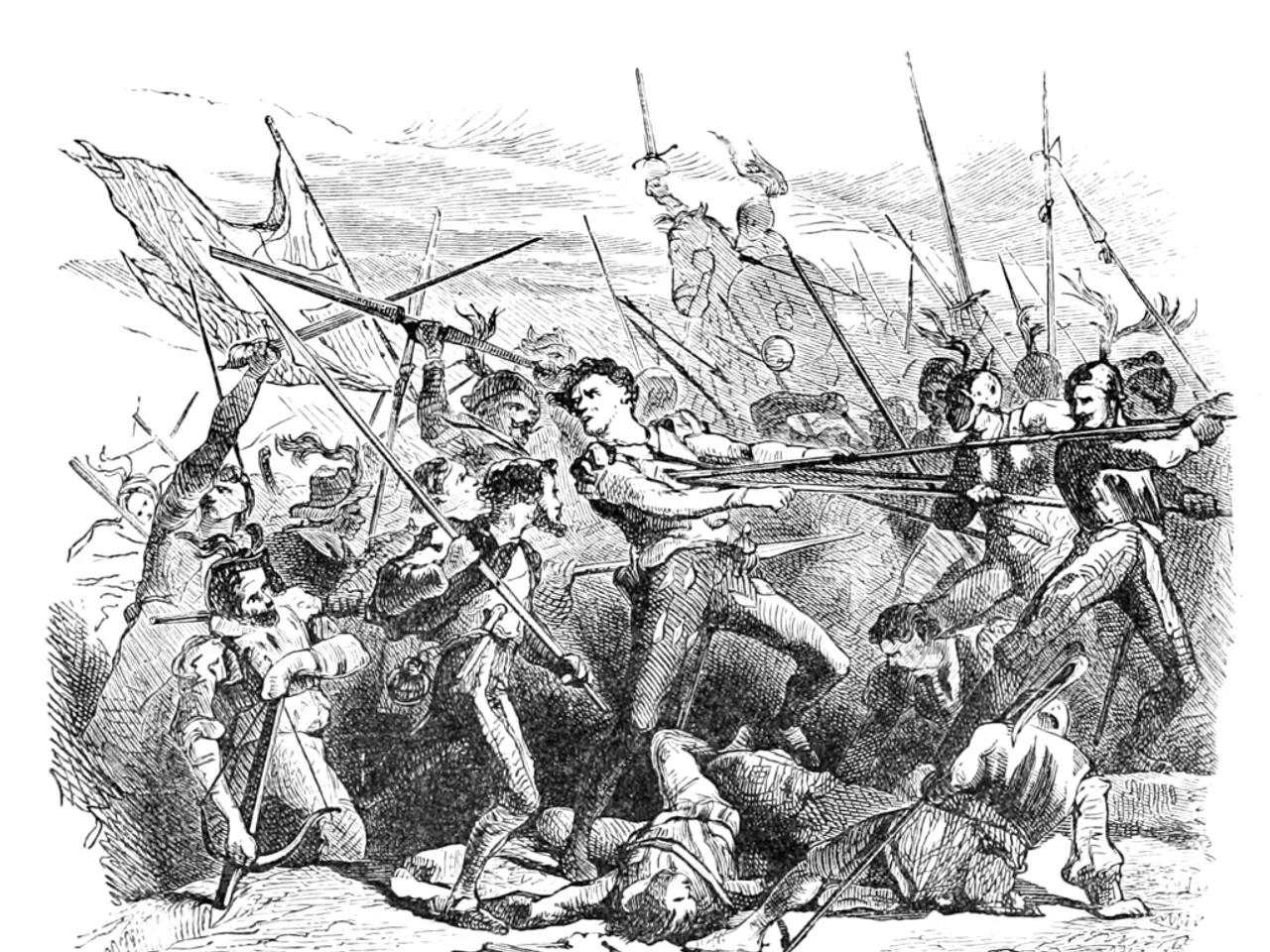United front is necessary for strengthening our alliance
Germany's Black-Red Coalition Faces Challenges
The black-red coalition, a partnership between the Social Democratic Party (SPD) and the Christian Democratic Union (CDU), is currently governing Germany under Chancellor Friedrich Merz. However, the coalition is facing significant challenges, including economic difficulties, policy disagreements, and strained party relations.
Economic Policy Disputes
One of the main challenges for the black-red coalition is finding a consensus on economic reforms. There is a notable split between pro-consolidation factions and those favoring easing fiscal limits to stimulate growth and defense spending. The government has started strict budget consolidation with an emphasis on fiscal discipline, reviews of government functions, and performance-based budgeting.
Coalition Dynamics
The coalition aims to be more efficient than the previous three-party coalition but still faces "fragile" unity. The government must manage SPD cooperation carefully while advancing its agenda. The relationship between the CDU/CSU (Union) and SPD shows signs of tension, although they remain coalition partners.
Energy Transition and Reforms
Lingering uncertainty in energy transition policy remains an unresolved issue after years of limbo. The coalition promised economic recovery and stable energy policy, but internal divisions and cautious communication have impeded swift action.
Migration and Security Tensions
Union leader Merz’s migration policies, including a "five-point plan" passed with support from FDP and AfD but not SPD or Greens, sparked controversies and mass protests. SPD and Greens strongly criticized what they saw as overreach and alleged cooperation with the far-right AfD, which CDU denies. This issue exacerbates friction between coalition partners and complicates parliamentary cooperation.
Role of Jens Spahn
Jens Spahn, former CDU Secretary General and Health Minister, remains an influential figure in the Union. His role typically involves shaping party strategy under Merz’s leadership. Despite not holding a top government post, Spahn's influence likely revolves around internal party dynamics and public positioning within Union ranks as they navigate coalition challenges.
Call for Closer Cooperation
In a recent interview, Jens Spahn called for closer cooperation within the black-red federal government, emphasizing its commitment to success for the benefit of the country. Spahn positioned the black-red federal government as a force for political restraint against the radical strategies of the AfD. This call may be an attempt to mend the strained relationship with the SPD, particularly in light of recent disagreements over the issue of new constitutional judges in the Bundestag.
In summary, the black-red coalition under Merz faces economic challenges, internal disputes over fiscal, energy, and migration policies, and a wary relationship between Union and SPD. The coalition seeks to maintain cohesion while managing austerity pressures and contentious security/migration debates, with figures like Jens Spahn playing roles within Union strategy but not currently holding top government posts.






